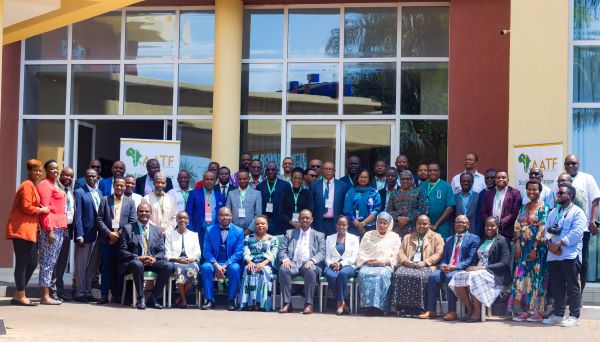Agricultural scientists from nine African nations convened in Kigali, Rwanda, for a strategic dialogue on biotechnology’s role in Africa’s agricultural and food systems. The gathering included experts from Kenya, Tanzania, Burkina Faso, Nigeria, Ghana, Malawi, Rwanda, Mozambique, and Ethiopia.
Under the theme “Strategic Dialogue on Biotechnology Research in Africa’s Agricultural Systems,” the meeting addressed the challenges facing Science, Technology, and Innovation (STI) on the continent. Participants emphasized that while Africa is rich in resources, limited investment in STI has hindered its development.
Dr. Canisius Kanangire, Executive Director of the African Agricultural Technology Foundation (AATF), highlighted the importance of collaboration among African scientists to advance research, regulation, and commercialization, particularly in addressing food insecurity exacerbated by climate change.
ALSO READ Why Nigeria’s biodiversity is imperative to biotechnology, transformative growth – NABRDA D-G
ALSO READ AATF launches handbook on seed production
ALSO READ AfDB commits $134m to cultivate rice, maize, cassava, soybeans in Nigeria
The researchers stressed the need for political support, resource mobilization, and stronger linkages between research and policy. They called for biotechnology to be treated as a national priority, with a focus on “Africanizing” biotech research and development.
Key recommendations from the meeting included prioritizing biotechnology in national budgets, creating enabling environments through policies and regulations, investing in human capacity and infrastructure, promoting intellectual property and commercialization, and enhancing the capacity of academia.
“To ensure sustainable investment in STI, there is a need for political leadership to understand the role of STI in national development. African political leaders have a pivotal role in transforming the biotechnology landscape on the continent. To ensure that Africa leapfrogs biotechnology development the following recommendations were drawn from the convening:
- Prioritization of biotechnology: Governments should increase budget allocations for research and development by ensuring implementation of 2% of GDP as stipulated in Agenda 2063. This investment will empower local scientists to drive the biotechnology agenda.
- Creation of enabling environments: Political leaders must establish and enforce policies, regulations, and frameworks that create a conducive environment for biotechnology investment. This includes engaging with local communities and stakeholders to ensure that biotechniology initiatives address local challenges and priorities.
- Strategic investment in human capacity and infrastructure: There is a need for focused investment in building human capacity, developing infrastructure, and enhancing regulatory frameworks. These investments will provide the foundation needed for sustained progress in biotechnology.
- Promotion of Intellectual Property and commercialization: Leaders should support the development of genetically engineered (GE) technologies within Africa, harmonize breeders’ rights, and prioritize the commercialization of biotech products. Establishing start-ups along the food value chains and creating demand for biotechnology are also critical steps.
- Enhancing Capacity of Academia: The need to enhance infrastructure and capacities that not only allows them to research with a possibility to commercialize their research outcomes to address national challenges.
These recommendations will be presented at the Ministerial Roundtable during the Africa Food System and Forum on September 3, 2024, at the Kigali Convention Centre.


